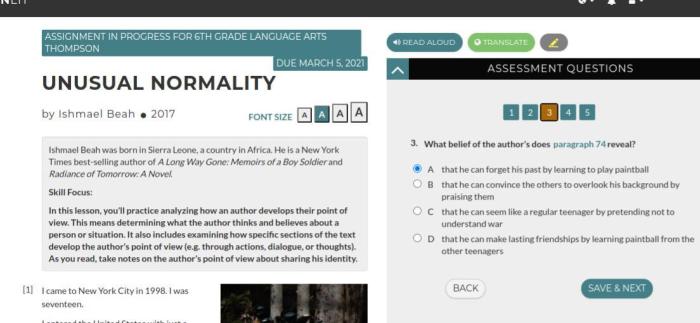In the realm of knowledge, unusual normality questions and answers emerge as paradoxical, absurd, and thought-provoking enigmas that challenge our assumptions and stimulate creativity. These questions defy conventional wisdom, inviting us on an intellectual journey that broadens our perspectives and enhances our cognitive flexibility.
Unusual normality questions and answers play a significant role in learning and development, fostering critical thinking and problem-solving skills. They encourage us to question the status quo, explore alternative viewpoints, and embrace ambiguity. By engaging with these questions, we cultivate a mindset that is open to new ideas and challenges, fostering intellectual growth and innovation.
Definition and Scope: Unusual Normality Questions And Answers

Unusual normality questions and answers challenge our perceptions of reality by presenting unexpected or seemingly paradoxical scenarios. They invite us to question the boundaries of what we consider normal and to explore alternative perspectives.
These questions often have characteristics such as absurdity, ambiguity, or thought-provoking complexity. They are designed to provoke cognitive dissonance and stimulate deeper thinking.
Types of Unusual Normality Questions
- Paradoxical Questions:Present two seemingly contradictory statements that, when combined, create a logical paradox. Example: “Is a liar someone who always lies, or someone who sometimes lies?”
- Absurd Questions:Challenge the boundaries of reason and logic, often presenting situations that defy common sense. Example: “What would happen if everyone in the world suddenly disappeared except you?”
- Thought-Provoking Questions:Explore complex ethical, philosophical, or existential dilemmas. Example: “What is the meaning of life?”
Cognitive and Emotional Impact
Encountering unusual normality questions and answers can have a significant cognitive and emotional impact:
- Cognitive Dissonance:They create a sense of unease and uncertainty, challenging our assumptions and beliefs.
- Stimulation of Creativity:They force us to think outside the box and explore alternative possibilities.
- Evocation of Curiosity:They arouse a desire to understand and explore the unknown.
Role in Learning and Development
Unusual normality questions and answers play a crucial role in fostering:
- Critical Thinking:They encourage us to evaluate evidence, analyze arguments, and make informed judgments.
- Problem-Solving:They require us to approach problems from different perspectives and find creative solutions.
- Cognitive Flexibility:They challenge our mental rigidity and encourage us to adapt to changing situations.
Cultural and Social Context
The prevalence and interpretation of unusual normality questions and answers are influenced by:
- Cultural Norms:Different cultures have varying levels of tolerance for ambiguity and paradox.
- Social Values:Questions that challenge societal beliefs or values may be met with resistance or skepticism.
- Belief Systems:Religious, philosophical, or ideological beliefs can shape how we perceive and respond to these questions.
Practical Applications, Unusual normality questions and answers
Unusual normality questions and answers have practical applications in:
- Education:They can foster creativity, critical thinking, and problem-solving skills.
- Psychology:They can be used to explore cognitive biases and develop coping mechanisms for uncertainty.
- Creativity:They can stimulate new ideas and break down mental barriers.
FAQ Insights
What is the significance of unusual normality questions and answers?
Unusual normality questions and answers challenge our assumptions, stimulate creativity, and evoke curiosity, fostering cognitive growth and flexibility.
How do unusual normality questions impact learning and development?
They enhance critical thinking and problem-solving skills, encourage exploration of alternative viewpoints, and cultivate a mindset open to new ideas and challenges.
What are some practical applications of unusual normality questions and answers?
They are used in education to promote deeper learning, in psychology to challenge cognitive biases, and in creativity to spark innovative thinking.


